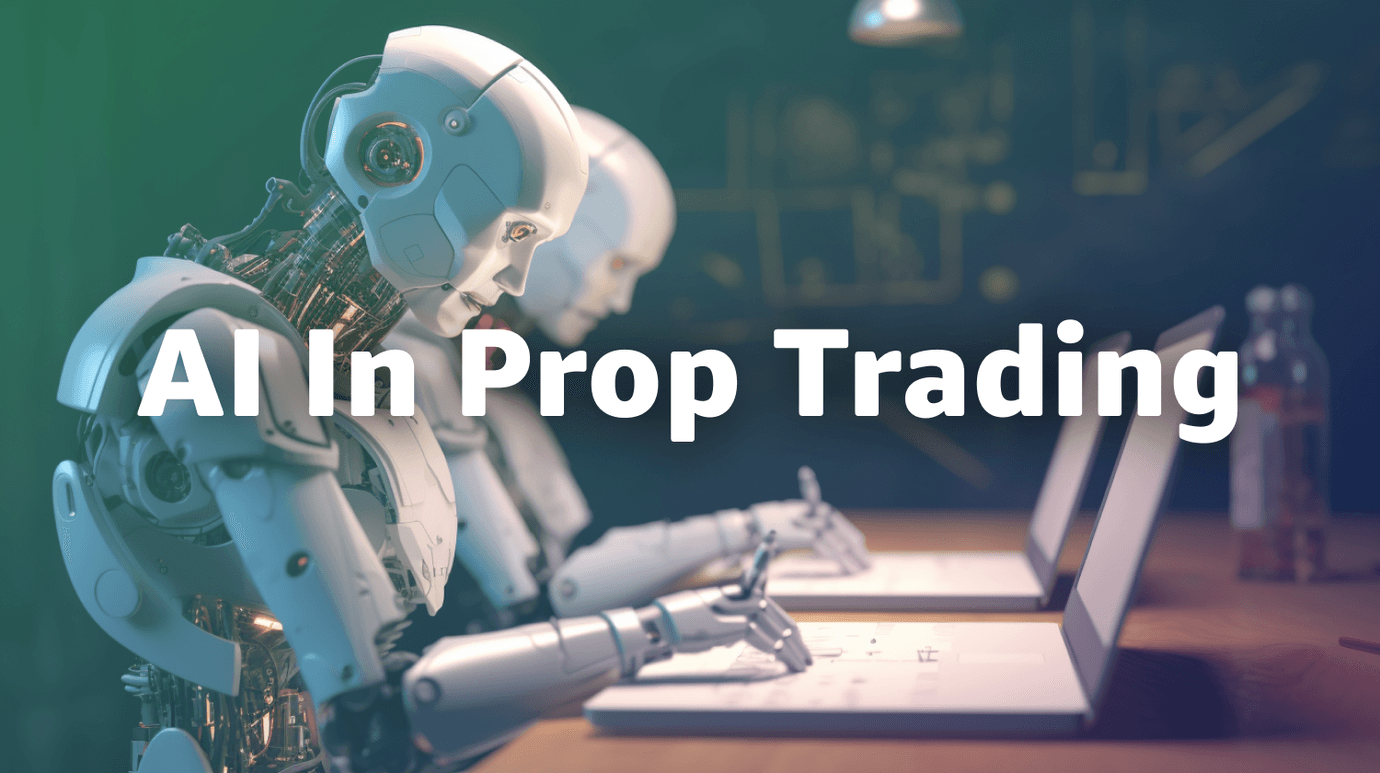The AI Revolution in Proprietary Trading: Can Bots Outperform Humans?

Uncover the profound impact of AI on proprietary trading, examining the rise of stock and crypto trading bots and their potential to surpass human traders.
Prop trading, a lucrative platform for third-party traders backed by prop firms is experiencing a major shift in functioning - the emergence of AI trading bots. These automated entities are revolutionizing proprietary trading, capable of processing vast data sets, making instant decisions, and executing trades within split seconds. This article will investigate the emerging role of AI in proprietary trading, scrutinizing the capabilities of stock and cryptocurrency trading bots, and discussing their potential for outperforming human traders.
Key Takeaways:
- The field of Prop trading is changing rapidly under the influence of AI trading algorithms, allowing traders to automate their efforts.
- AI Trading algorithms or “AI Trading Bots” are programs designed to automatically execute trades based on specific conditions while improving themselves on the go.
- Bots can process large amounts of data, swiftly react to market movements, and remain consistent without being influenced by emotions.
- Human traders are still irreplaceable in terms of intuitive understanding, critical thinking, and making long-term strategic decisions.
What are AI Trading Algorithms?
AI Trading algorithms have seen a huge increase in popularity during the last few years, especially in crypto and the stock market. They are programs for the automated execution of trades, which use artificial intelligence to constantly learn and improve their strategy.
Fully automated trading software is sometimes called a “trading bot”. Such bot is connected to an exchange or broker and has a strictly defined logic on how to behave on the market. Algorithms that use AI can react with flexibility to rapidly changing market conditions in a similar way to a human trader but without unnecessary emotions.
Curious about other use cases of Artificial intelligence (AI) or LLMs such as ChatGPT and apps such as Fello AI in crypto? Read our overview of the AI narrative.
A benefit of “trading bots” or “Algo Trading” is that they are capable of processing an enormous volume of data and acting on them at lightning speed, enabling the execution of trades that would be impossible for a human trader. Profitability is then dependent on how precisely is the algorithm able to predict future market movements.
With that said is it possible that proprietary firms will start investing more in algorithms rather than human traders? Let's find out.
Should Prop Traders be Worried about their Job?
It's crucial to remember that AI and algorithms are tools created and refined by humans. As such, they inherit the strengths and weaknesses of their human creators. Algorithms can only operate within the parameters they're given, and they don't possess the human ability to interpret contextual information or employ intuitive judgment that goes beyond the numbers.
Furthermore, the financial markets are highly dynamic and influenced by a myriad of factors, including political events, economic shifts, and even psychological factors that AI might not fully grasp. These nuances often require the unique human capability for critical thinking, creativity, and intuition.
The Bottom Line
While AI trading algorithms can enhance efficiency and reduce the room for human error, they're unlikely to completely replace human traders. The future of trading likely involves a synergy of both, with algorithms handling data-heavy tasks and humans focusing on strategic decision-making and interpreting complex, non-quantifiable factors. This combination could usher in a new era of trading, maximizing the strengths of both AI and human intelligence.
This of course goes over to prop trading, where prop firms would still need human traders to make the strategic decision and fine-tune the algorithms to the current market environment.


